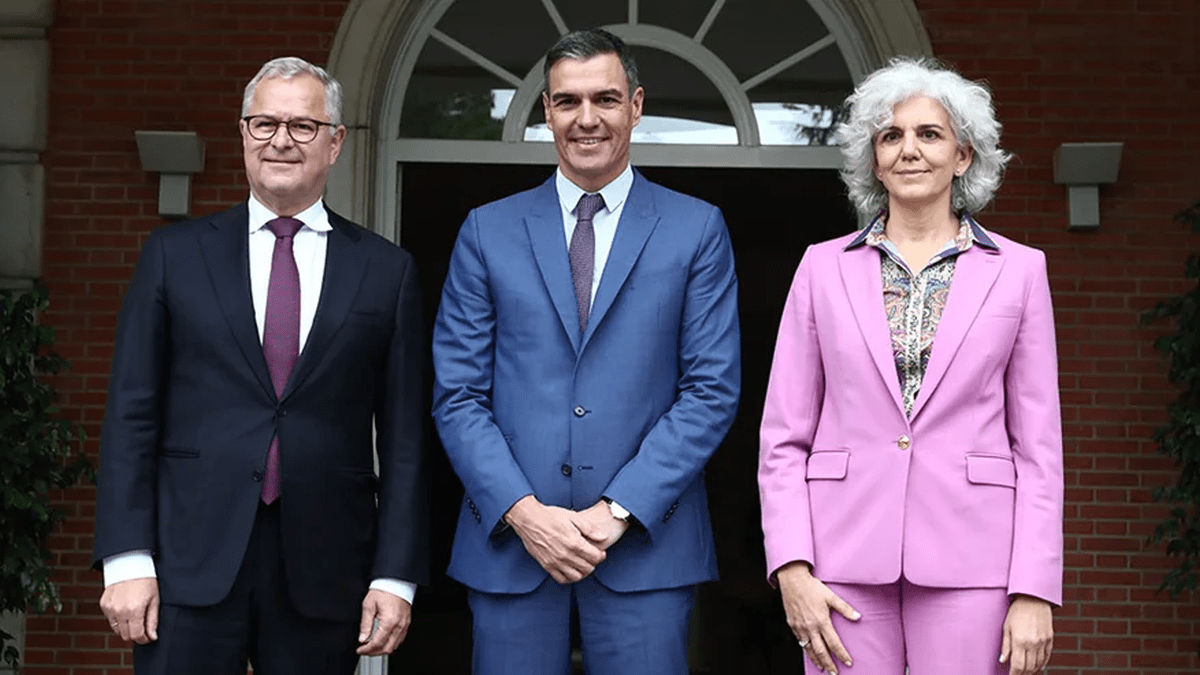Under an agreement with Spain called a General Protocol for Collaboration, Maersk could secure “up to 2M tonnes of green fuels per year”
Container shipping giant AP Moller-Maersk has signed a partnership with Spain that could see the company secure as much as a third of what it needs to reach the 2030 emissions target of 50% fewer emissions per transported container the company has set for its oceangoing fleet.
Maersk chief executive Soren Skou met with Spanish prime minister Pedro Sánchez to hammer out the terms of the deal.
“Signing the Protocol marks a significant milestone in the collaboration that, if implemented in full, could deliver up to 2M tonnes of green fuels per year. The project aims to explore the feasibility of how to cover the full value chain from renewable energy sources to bunkering of vessels,” Maersk said.
According to the company, it is looking at production opportunities in the Spanish regions of Andalusia and Galicia. Maersk said the project could generate as many as 85,000 jobs in the regions.
Maersk has set anet-zero emissions target for 2040across the entire business and has also set tangible near-term targets for 2030 to ensure the company makes significant progress toward its goals. The interim targets include a 50% reduction in emissions per transported container in the Maersk Ocean fleet compared with 2020 and a principle of only ordering newbuilt vessels that can be operated on green fuels.
Since announcing a contract to build at least a dozen box ships capable of running on green methanol – an order the company has since increased to nearly 20 vessels – Maersk has undertaken a drive to secure quantities of the fuel through investment and partnerships with companies and governments around the world.
In spite of the company working to establish seven “strategic partnerships” around supply of green methanol, Maersk still lists fuel availability, supply levels and price as primary challenges for its plans to decarbonise.
“The availability of green energy and fuels in sufficient quantities and at cost-competitive price levels remains the main challenge for the decarbonisation of global shipping.Maersk alone needs approximately 6M tonnes of green methanol per year to reach its 2030 milestone fleet emissions target and even larger amounts by 2040 for its fleet to reach net zero,” Maersk said.
Maersk has calculated that the 19 vessels capable of running on green methanol that are scheduled to be in operation between 2023-2025 will require approximately 750,000 tonnes of green methanol.
“We are living in a climate emergency, and we need to rapidly accelerate the availability of green future fuels. We are very pleased to explore green fuel opportunities with the Spanish Government, as the country holds key characteristics to help solve this challenge with its great hydrogen ambitions and aspiring sustainability goals. At the same time, Spain encompasses significant renewable resources and is placed along key shipping routes,” Maersk chief executive Soren Skou said.






